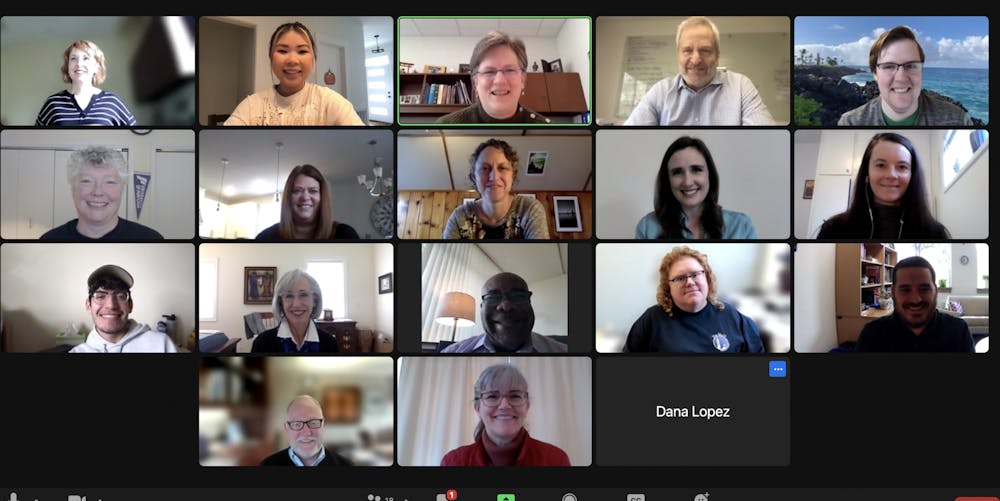During the academic school year of 2021-22, staff and faculty have been faced with an unprecedented number of challenges that often go unnoticed to the student body. From having to pivot between a number of positions, switching between online and in-person work and navigating a pandemic, it is evident that they have had to take on more responsibilities than they signed up for.
We both sit on the COVID-19 steering committee which meets weekly to discuss the school’s plans for example, creating COVID-19 policies, evaluating safety on campus and providing a plan of action to President Medina. In short, anything COVID-19 related has been discussed by this committee. Most of UP’s top stake-holders sit on this committee and many of them do work that stretches beyond their respective roles. This past meeting (Jan. 26), when met with the question ”how are you doing?” several of the members were moved to tears by how burnt out they and other UP employees feel.
People forget that these individuals are the heartbeat of UP; they keep things going. They ensure the school runs smoothly. When things are bad, they get blamed, but when things are good, they often go without recognition. We wanted to share with those reading how important these individuals and how vital their work to the University is. To be blunt, we may not have been able to physically return to campus if it were not for the work that these individuals do, along with many other administrators, faculty and staff.
These employees feel burnt out, overstretched, overworked and inadequately compensated. They are on-call during holidays and weekends, they deliver meals to students and they spend all of their time planning how to make the school run in order to keep us, the students, here and happy on campus. It is not an easy job. There is no single answer and no template to look at to provide guidance for their jobs.
While we know that this school year has not been perfect, we wanted to acknowledge and thank these individuals for all the work they’ve done to make this school year possible. Students are in dorms, classrooms and dining halls; student nurses and teachers are back in the field; we had our first dance last semester for the first time in a year and a half; and there is so much more that we’ve been able to do this school year thanks to UP’s employees.
While we do want to appreciate these employees, we also want to recognize that the work they have done and continue to do is not sustainable. The school would not function without their presence, yet these employees are worked to their breaking point. In other words, there is too much work and not enough people. If the school does not recognize this burnout and put the well-being of their employees first, we will be in trouble and the student body will start being affected by it.
When the leaders of the school feel burnt out, it trickles down to their teams which include other faculty, staff and student-workers — all who are vital to the school. The University needs to develop plans that are proactive, not just reactive.
This message is for anyone who needs to hear it, and we want to reiterate 3 things:
UP’s employees are exhausted.
We thank UP’s employees for what they do and appreciate them.
We want UP’s employees to have more support and for their conditions to change.
Next time you see a UP employee, please keep in mind how much they do for this school. They likely do more than you think and without them we would not be here on the Bluff.
Emma Fuller is the ASUP Student Body President. She can be reached at fuller23@up.edu.
Daniel Mesquiti is an ASUP senator. He can be reached at mesquiti23@up.edu.
Have something to say about this? We’re dedicated to publishing a wide variety of viewpoints, and we’d like to hear from you. Voice your opinion in The Beacon.








